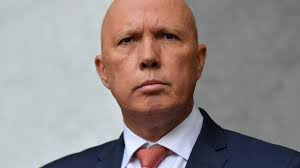
The Problems With Work
We face a number of challenges for the concept we know of as ‘work’. Some of these challenges are relatively new, such as the AI revolution happening now, and some are more long term, like increasing specialisation and the failure of many jobs to provide any real meaning or purpose for the worker doing them. The problems with work are multifaceted and many. Indeed, the very idea of work may be outdated and irrelevant in our rapidly changing economic landscape. You may be surprised at the number of us who now garner most of their contentment in life from other sources outside of their main income generating occupation.
Work Fast Becoming An Obsolete Idea
The excitement in the global economy at the moment, represented by the share price of the tech stocks in the US, is all about AI. The continuing replacement of technical and middle management jobs with AI programs will see work fast becoming an obsolete idea for many previously employed within these sectors of the economy. There has been a disconnect between the kind of jobs many have been performing and the level of satisfaction which can come from a job well done, as that experience is becoming rarer all the time. The loss of manufacturing jobs in Western economies, as they were moved offshore to developing countries where wages were much lower, directly contributed to the demise of job satisfaction levels for many having to make do with jobs in the gig economy. Being involved in making something can offer the participant a purpose, even if they only play a part in the overall process. Mechanisation and automation have been reducing human involvement in manufacturing for some time now. Capitalism and businesses focus on the bottom line, seeing the labour input as just numbers in the overall profit and loss equation. The trend toward greater concentration within industries has seen companies merge and swallow up their smaller rivals. This has resulted in greater investment in technologies which replace humans with machines. AI is another leap in this direction to include white collar jobs upstairs and not just on the factory floor.

Work Dominated By Corporate Concentration
Globally we see markets dominated by duopolies and oligopolies in every sector. Huge corporations with massive market power that belittles consumers and their ability to influence prices. We have witnessed the rise of these corporate behemoths, which have way more power, an imbalance of power, in relation to their customers and their workers. Governments have been complicit in allowing these companies to merge and thus remove competitive forces from their markets. Corporate lobbyists have bought the ears of elected representatives to have their way with oversight committees. Government agencies have been neutered by companies poaching their staff in return for better wages and other more shady means. The end result is that human beings are treated as secondary to company profits and shareholder dividends. If you really think about this for a second it is totally crazy, we are sacrificing our brothers and sisters within workforces for a select few who benefit financially from the success of these corporate entities. We are further sacrificing, many more of us who are the consumers of, in lots of instances, these essential services or products in terms of the higher prices we are paying at the checkout. Millions of human beings are being shafted for a minority. This goes on in the AI revolution, where these same few are overseeing the uptake of a technology designed to directly replace human beings. Talk about shooting yourself in the foot as a species. We value making greater profits at the expense of creating a world where humans are bereft of having the dignity of work. The craziness of this is there for all to see. More alarmed experts among us are warning about the very real dangers of AI terminating our existence in the foreseeable future as a matter of course. If we continue to value machines over humans, this is a very real and present danger. The recent Microsoft CrowdStrike blue screen of death IT outage is an example of our overreliance on one company providing computer servers for networks and essential services like airline travel, government administrative services, and businesses everywhere. We are putting too many eggs in the one basket because of the over-concentration of corporate power in the IT sector.

Capitalism Cannibalising Us For More Profits
You can see this happening with our current set up because capitalism overrides all other concerns in its endless desire for ever greater levels of profitability. Governments are becoming smaller and weaker in comparison to these giant corporate entities. Most multinational corporations pay very little tax, as they move their profits around to tax free shelters. Governments have been decidedly unsuccessful in reversing this trend through new legislation. Big business and their accountancy firms always seem to have the ear of our politicians. Government services are dependent upon taxation revenue to provide the necessary levels demanded by their citizens. Health, education, national security, and social services are still largely dependent upon governments for their revenue to operate effectively. It is the poorer workers who carry the greatest load via income tax, whilst the big end of town engages enough accountants to legally avoid and minimise their tax requirements. The privatisation of many government services over the last 40 years, since Reagan, has seen a whole host of sectors now serviced by private equity run firms. Some have been effective, but many have not. Health is not a sector best served by ‘for profit’ concerns, as there are real problems when corners are cut, and costs screwed down to the detriment of people’s lives. Hospitals, private hospitals, are run like billion-dollar corporations where the pharmaceutical giants retain massive influence over how things are run. Medical insurance is another factor which has made America the most expensive place in the world to get treatment in a private hospital.
More Americans are pushed into bankruptcy on the back of their outrageous medical bills than for any other single reason.
Workers Run Second To Shareholders & Investors
The problems with work can be manifold. The demise of union power in most Western economies has coincided with stagnant wage growth over the last three decades. The power has shifted to and resides with the corporations over the workers. The current cost of living crisis borne on high inflation post pandemic has seen the wages of most workers fall further behind in its buying power. The housing crisis, which is happening globally in Europe, Australia, the UK, Canada, and the States, has seen rents go through the roof, rising by 30% in many instances. This is highly inflationary. Food, energy, insurance, and housing costs have been rising for the last 3 years making the lives of workers much harder. So, not only has the satisfaction levels at the kind of jobs we do dramatically dropped but the return on our labour has also gone down. Governments and central banks value shareholders far more than workers within their equations. This has been going for more than 3 decades now. Even labour sided governments have been operating under the neoliberal economic model for the last 30 years. Clinton in the US, Blair in Britain, and the Labor governments in Australia have put their faith in the privatisation of government services paradigm to the detriment of many of their citizens. Workers have been classed as second-class concerns for too long in the shadow of the glorification of corporatisation and privatisation. Banks have become massively wealthy via their corporate concentration and market share. Banks no longer trumpet the absolute security of their depositor’s funds, instead they primarily provide the convenience of digital transactional exchange for a fee. User pays is the name of the game in the 21C – the rentier economy where subscriptions, fees and charges have replaced the need to increase productivity to be highly profitable. Every sector operates in this manner now – renting out IP, access, mining rights, and such like to customers and other businesses. Labour does not rate highly within this economic model and the future for workers does not look rosy on this score. Those in power at the big end of town do not value human beings and are actively investing in technologies to further reduce their reliance on the human factor. It is insane when viewed from a holistic perspective and when regarding the health and wellbeing of humanity.
We are all being overtly betrayed by a cohort of CEOs, economists, accountants, investors, and billionaire entrepreneurs. The stupidity is next level, and the likely demise of humanity is on the cards.

The Mania For Machines & AI
There is no one capable of arresting this momentum. The President of the United States is not positioned to do so, even if there was a candidate intelligent enough to wish to do so. Capitalism is a system driven by money managers of huge hedge funds, pension funds, merchant banks, investors, currency dealers, and central bankers. Politics and governments bow down to the money and share markets when push comes to shove and the next cyclical crisis is always just around the corner. The markets love technology, and the tech stocks are driving the growth in investment. There is no one person or group sane enough and with enough kudos to sway the surge toward AI. We are hurtling headlong toward our own likely demise. You may have heard of the tulip fever that infected Holland in the 17C, where an investment mania for tulips threatened their economy. Markets and investors can lose their heads, which is how we end up with crashes and economic disasters of epic proportions.
Bullshit Jobs & Finding Solace In Recreation
The problems with work may include it becoming largely unnecessary for the functioning of the modern economy. Let’s say AI takes over all the jobs in a futuristic world and does everything better. What are we all going to do? What are our children going to fill their lives with? What will become of the dignity of work? Will we find our purpose and meaning in recreation? Many of us already source greater meaning from our recreational interests than from our meaningless jobs. The late David Graeber wrote a book about the prevalence of Bullshit Jobs. That many jobs we do are largely unnecessary and serve little real purpose. Will the consumption of video games and the streaming of entertainments provide us with contentment within our lives?
How will AI view all these parasitic human beings lolling about on the sidelines? Will we find ourselves being evaluated as surplus to requirements by the machines running the show?

Billionaires Shaping Our Working Lives
Many of us are being herded out of work by billionaires hell bent on maximising their profits. The Elon Musk’s. The Mark Zuckerberg’s. Jeff Bezos. Charles Koch. Bill Gates. Peter Thiel. The power and wealth of these super wealthy individuals and their corporations are changing our worlds according to their profit motives. Democracy has been weakened and damaged by the proliferation of oligarchs. Bad billionaire’s like Putin and his ilk are involved in authoritarian regimes and organised crime on a massive scale. Our working lives are being shaped by the greed and machinations of these modern-day Lords and Princes.
Soulless Jobs
I know for me that my work must have some meaning, or I struggle with staying the course. Yes, economic necessities may drive me to find income generating work, but I cannot stay in a job merely for the money. If I am confronted with stupidity, meaninglessness, an absence of integrity, or nepotism in my work I rarely hang around for long in that job. Most of the positions I have left, have been, according to me, fucked up by those supposed to be driving the bus.
Life is too short to stay in jobs that depress or bedevil.
Devaluing Our Work
The problems with work include central banks that operate on a 5% unemployment rate as their definition of full employment within their economies. This is millions of people out of work and the misery that entails factored into the spreadsheets of economists and bankers. How can that be in the 21C? Have we come such a miniscule way from the bad old days? Economics rules the roost, as we have seen via the reaction of all the central banks to the high inflation post pandemic and their quantitative easing. Raising interest rates to dampen spending and demand within the economy. This has exacerbated the housing crisis and pushed rents up even higher prolonging sticky inflation. The working poor pay the steepest price for our reliance on monetary policy over all other means of managing the health of the economy. Those who can least afford it cop it in the neck. Investors and the wealthy can ride out the tight times without undue economic pain. Working has always been a poorly performing activity in comparison to other forms of wealth creation. Labour has traditionally offered a fairly meagre return on investment. When you think about the history of chattel slavery and peonage slavery, we humans have had a pretty rotten attitude toward the labour of our fellow and sister human beings.
In contrast to this, we are endlessly enamoured of technology and value this far more than our own working efforts. We are a strange lot when you think about it.
Robert Sudha Hamilton is the author of America Matters: Pre-apocalyptic Posts & Essays in the Shadow of Trump.

©HouseTherapy








